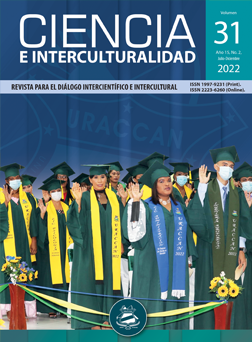The process of university extension in relation to the demands of the agricultural and forestry sector in Nicaragua
Abstract
The study is a theoretical contribution to the educational sciences, with the construction of a permanent dialogue between the university and its environment for an inclusive and transformative articulation. The objective was to identify the main demands of the agricultural and forestry sector in reference to the management of the university extension process. The research was qualitative, with a critical extension approach and methodology based on Grounded Theory. The sampling was theoretical and semi-structured interviews were applied with their respective question guides and documentary analysis matrix. Among the main demands identified, the following stand out: training of change agents at the service of the community, generation of knowledge flows, integral graduates training, university with social commitment, inter-institutional strengthening, integrality in academic processes, and productive systems with an agroecological approach. Therefore, it is important to permanently update the demands of the sector in a systemic manner with participatory processes of self-management and relevance that allow for the continuous improvement of the living conditions of the rural population.
Downloads

This work is licensed under a Creative Commons Attribution-NonCommercial-NoDerivatives 4.0 International License.
El autor mantiene los derechos morales y permite la cesión gratuita, exclusiva y por plazo indefinido de sus derechos patrimoniales de autoría a la Universidad de las Regiones Autónomas de la Costa Caribe Nicaraguense (URACCAN).






